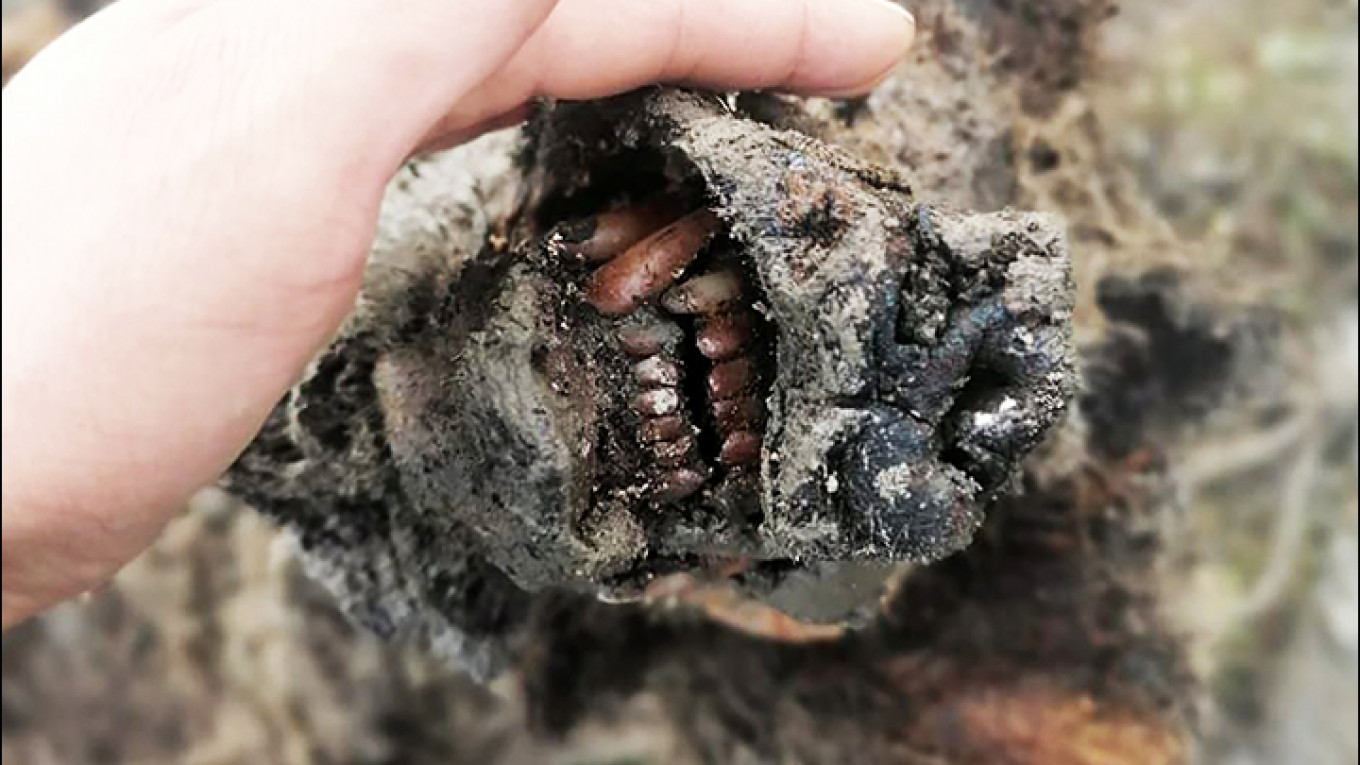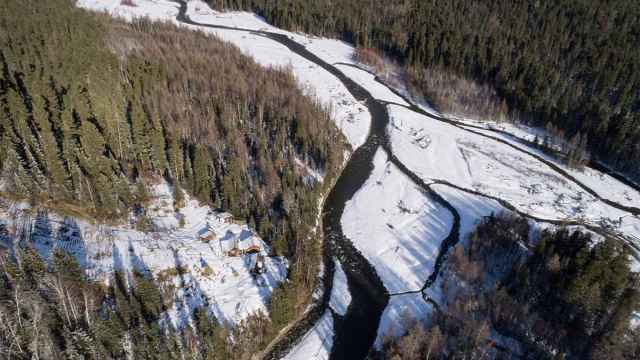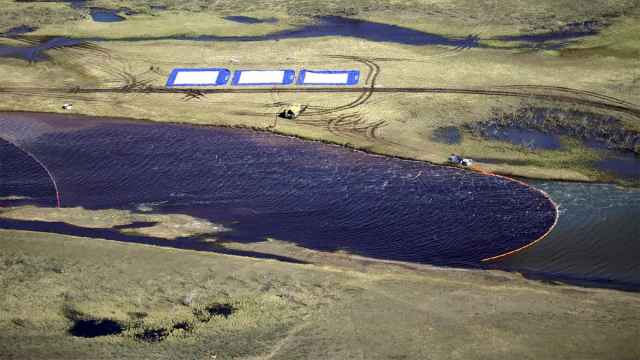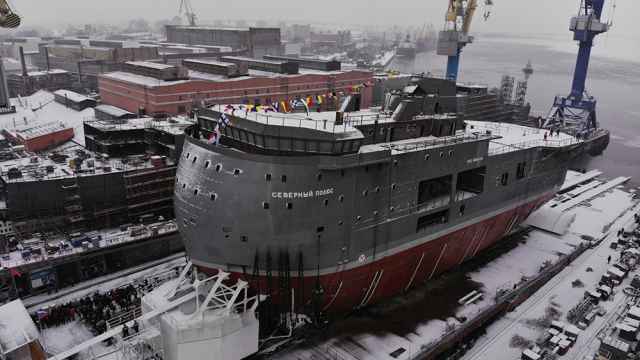Reindeer herders in Russia's Arctic have discovered what scientists say is the first-ever cave bear carcass with soft tissues intact in the region's rapidly thawing permafrost.
The Ice Age-era animal is believed to have lived between 22,000 and 39,500 years ago, Russia’s North-Eastern Federal University (NEFU) said in a statement Monday. Previously, the university said they have come across only the skulls and bones of the prehistoric species that became extinct around 15,000 years ago.
“Today this is the first and only find of its kind — a whole bear carcass with soft tissues,” scientist Lena Grigorieva said.
“It is completely preserved, with all internal organs in place including even its nose,” Grigorieva added. “This find is of great importance for the whole world.”
The herders found the well-preserved remains on the Lyakhovsky Islands, which are part of the New Siberian Islands archipelago 4,500 kilometers northeast of Moscow in Russia’s Far North.
Radiocarbon analysis is needed to narrow down the cave bear’s age, said Maxim Cheprasov, senior researcher at the Mammoth Museum in Russia’s northern republic of Sakha.
Permafrost melt in Siberia has led to the discoveries of mammoths, woolly rhinos, Ice Age foal, puppies and cave lion cubs in recent years.
Scientists say complete skeletons of extinct animals are relatively rare finds.
Russia’s Arctic and Siberian regions, already warming at a faster rate than the rest of the world, are facing a historic summer heat wave accompanied by wildfires, fuel spills, crop failures and more.
Climate scientists warn that melting permafrost in these regions could release mass amounts of greenhouse gases into the atmosphere, further accelerating climate change.
A Message from The Moscow Times:
Dear readers,
We are facing unprecedented challenges. Russia's Prosecutor General's Office has designated The Moscow Times as an "undesirable" organization, criminalizing our work and putting our staff at risk of prosecution. This follows our earlier unjust labeling as a "foreign agent."
These actions are direct attempts to silence independent journalism in Russia. The authorities claim our work "discredits the decisions of the Russian leadership." We see things differently: we strive to provide accurate, unbiased reporting on Russia.
We, the journalists of The Moscow Times, refuse to be silenced. But to continue our work, we need your help.
Your support, no matter how small, makes a world of difference. If you can, please support us monthly starting from just $2. It's quick to set up, and every contribution makes a significant impact.
By supporting The Moscow Times, you're defending open, independent journalism in the face of repression. Thank you for standing with us.
Remind me later.






